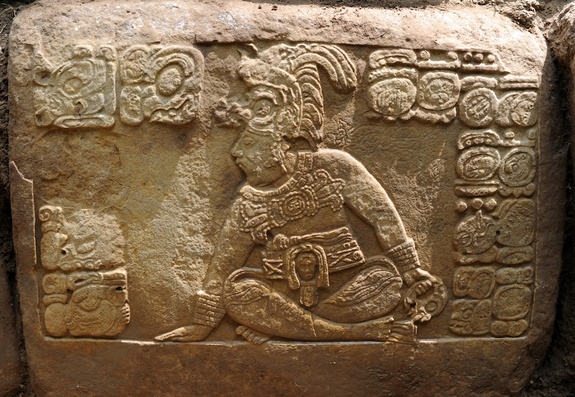Vatican Skeptical of Mayan Apocalypse Rumors

Get the world’s most fascinating discoveries delivered straight to your inbox.
You are now subscribed
Your newsletter sign-up was successful
Want to add more newsletters?

Delivered Daily
Daily Newsletter
Sign up for the latest discoveries, groundbreaking research and fascinating breakthroughs that impact you and the wider world direct to your inbox.

Once a week
Life's Little Mysteries
Feed your curiosity with an exclusive mystery every week, solved with science and delivered direct to your inbox before it's seen anywhere else.

Once a week
How It Works
Sign up to our free science & technology newsletter for your weekly fix of fascinating articles, quick quizzes, amazing images, and more

Delivered daily
Space.com Newsletter
Breaking space news, the latest updates on rocket launches, skywatching events and more!

Once a month
Watch This Space
Sign up to our monthly entertainment newsletter to keep up with all our coverage of the latest sci-fi and space movies, tv shows, games and books.

Once a week
Night Sky This Week
Discover this week's must-see night sky events, moon phases, and stunning astrophotos. Sign up for our skywatching newsletter and explore the universe with us!
Join the club
Get full access to premium articles, exclusive features and a growing list of member rewards.
A number of experts have weighed in on the purported, though not scientifically grounded, Mayan apocalypse that some believers fear will strike the Earth on Dec. 21. Not to be left out, the Vatican has joined the growing chorus of doomsday skeptics urging people worldwide to remain calm.
The Rev. Jose Funes, the Vatican's official astronomer — yes, the Vatican has an official astronomer on staff, presumably for just such emergencies — called rumors of the planet's impending doom "not even worth discussing."
Funes, director of the Vatican Observatory, also acknowledged that the universe is expanding, and some people fear this may cause parts of the universe to "break away," he added that these accounts of apocalyptic gloom should not alarm Christians because, as he told the Associated Press, "death can never have the last word."
If that statement fails to reassure you, consider the comments of David Morrison, an astrobiologist at NASA Ames Research Center in California's Silicon Valley: "There is no true issue here," he said during a NASA Google+ Hangout event concerning the alleged doomsday. "This is just a manufactured fantasy."
According to some (mis)interpretations of the Mayan calendar, a calendar cycle called the 13th b'ak'tun comes to an end on Dec. 21. Most Maya scholars agree, however, that the ancient Maya would not have construed the end of this calendar cycle as an alarming or apocalyptic event.
Get the world’s most fascinating discoveries delivered straight to your inbox.

 Live Science Plus
Live Science Plus





